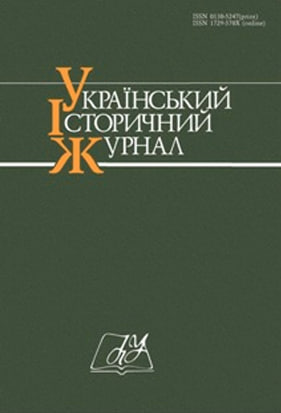The Testament of Kostіantyn Vyshnevetskyi, Ruthenian Voivode (May 31, 1641): Circumstances of Composition and Internal Structure
DOI:
https://doi.org/10.15407/uhj2020.01.155%20Keywords:
early modern acts of last will (testament), inheritance, death orders, funeral practices, the princely family of Vyshnevetski, early modern mentality, religiosity, gentry, gentry social, family tiesAbstract
The article aims to introduce into the scientific circulation and to do a formal analysis of the last will of the Ruthenian governor Kostіantyn Vyshnevetskyi (died in 1641), who was a representative of the well-known and prosperous Volyn princely family. Some statements of this testament prompted the convening of a special senatorial meeting at the royal court, as a result of which specific death orders of the prince were declared illegal: this consequence became a unique case in relations between the Ukrainian princes and the monarch of the Polish-Lithuanian Commonwealth. Up till now, the content of K.Vyshnevetskyi’s last will was known to historians only in translation. There were even some assumptions about its evident falsification.
Therefore its publication and analysis is a scientific novelty.
The proper application of the diplomatic analysis, which consists of the textual deconstruction and isolation of clauses typical for the early-modern texts, allows us to confirm the authenticity of K.Vyshnevetskyi’s testament.
Conclusions. The form and internal structure of K.Vyshnevetskyi’s testament are typical for the magnate and noblemen testaments of that time; the order of testamentary dispositions can be considered exemplary. K.Vyshnevetskyi assigned funds for the salvation of his soul and determined the burial place of his body. However, the tester did not approve himself neither an overly pious man, nor did he seek to perfect his property affairs or to prevent possible conflicts over his inheritance. The principal purpose of the last will of the old prince, somewhat disoriented by the sudden death of his last son, was the desire to secure the future (i.e. welfare, property, education, and upbringing) for the grandchildren and grandchildren – their offspring of the male line. The embodiment of this testament was the appointment of reliable guardians for the juniors of Vyshnevetskyi among his blood and adopted relatives. However, it was his testamentary disposition, as the events of the coming months proved, that it was unrealistic to fulfill and even led to self-righteousness.


